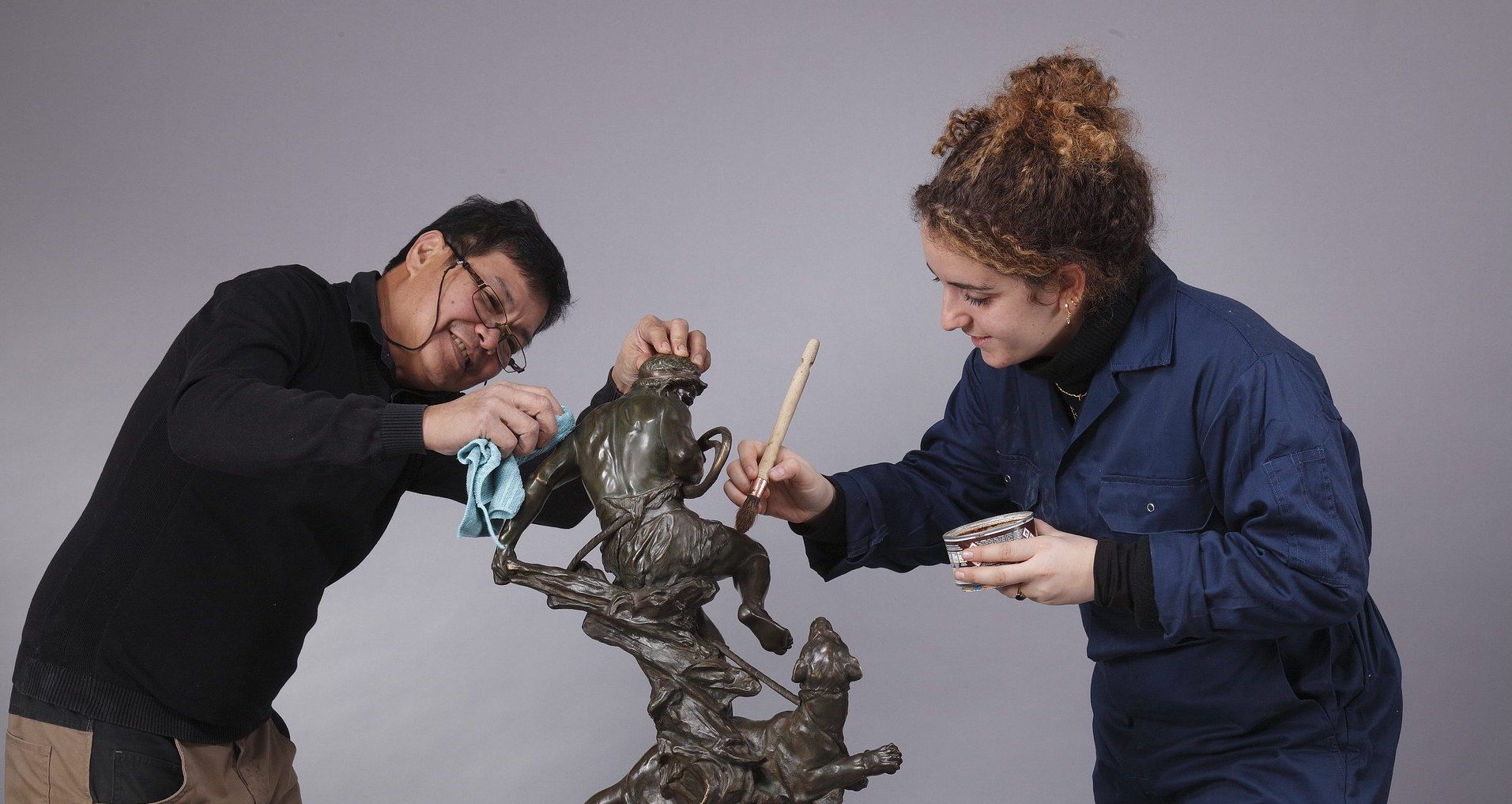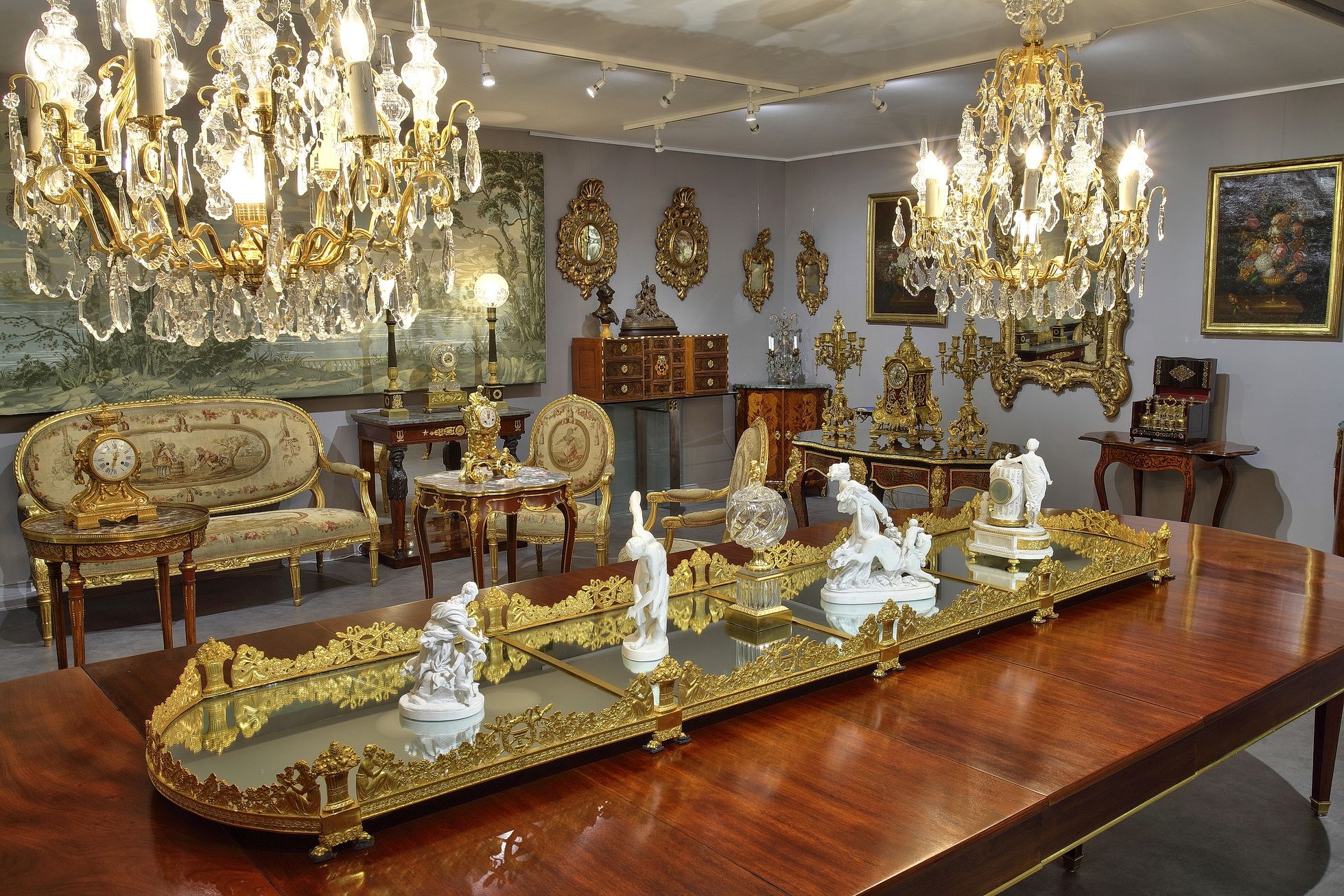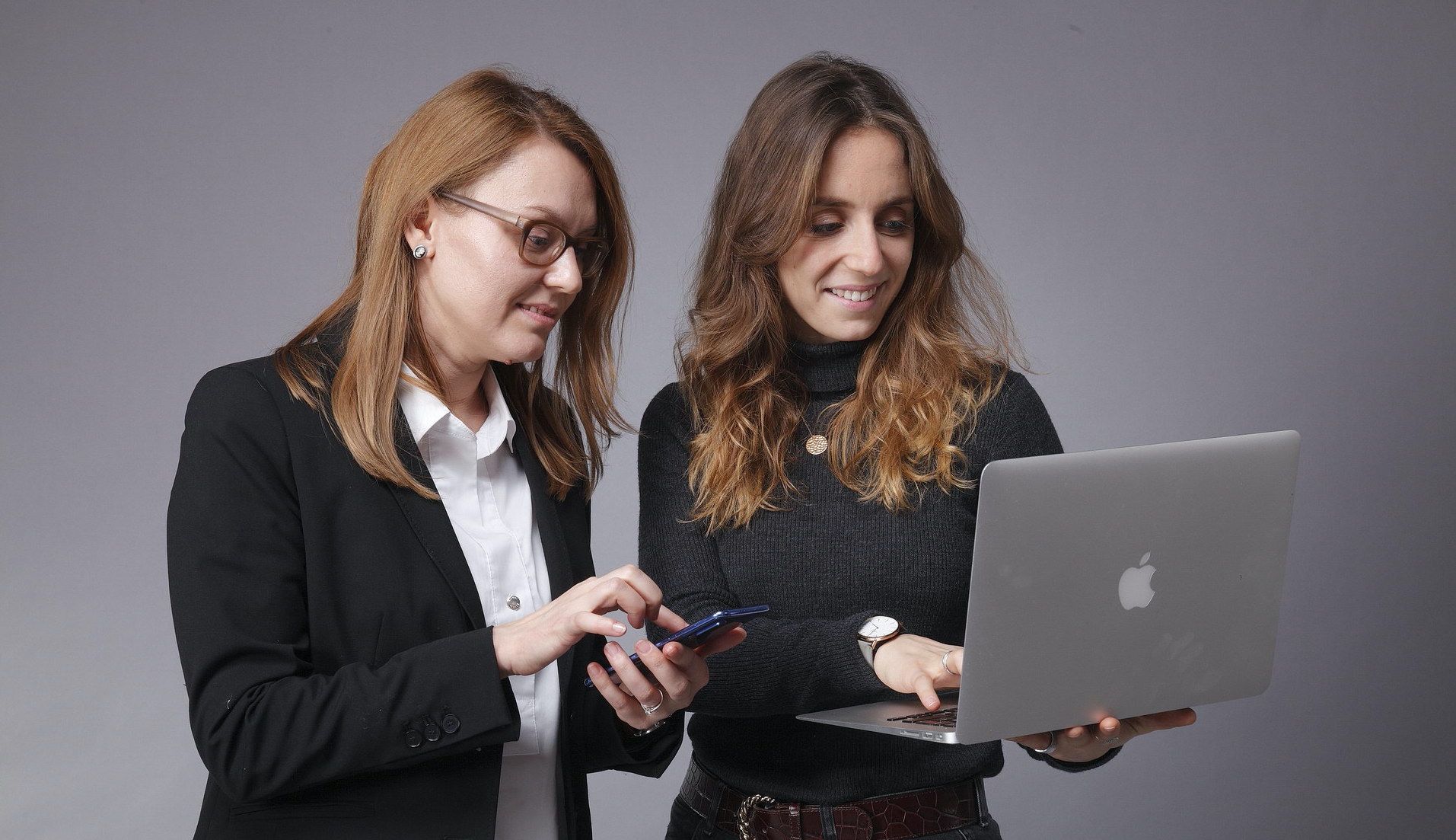The new-generation antique gallery
16.03.21
A little history...
Galerie Atena was born in the Louvre des Antiquaires, a stone's throw from the Louvre Museum, where Frédéric and Nidal Sioufi opened their first gallery in 2001. This exceptional location in the heart of Paris has long been considered a must for professional and amateur collectors alike, as well as for visiting tourists.
The Antiquaires quickly realized the importance of the Internet, and set up their website in 2002. They are among the pioneers of online sales in their field. The early development of their site enabled them to cope with the decline in the number of visitors to the Louvre des Antiquaires, and with customers' growing interest in design and contemporary art.
In 2014, they decided to organize themselves differently by leaving the Louvre des Antiquaires. With the excessive rents in Paris, they moved into a beautiful architect-designed house built in 1969, in Le Vésinet, which serves as a guest gallery where they exhibit twentieth-century design furniture.. At the same time, they opened a large showroom in Montesson to showcase their decorative objects and furniture from the 18th and 19th centuries.
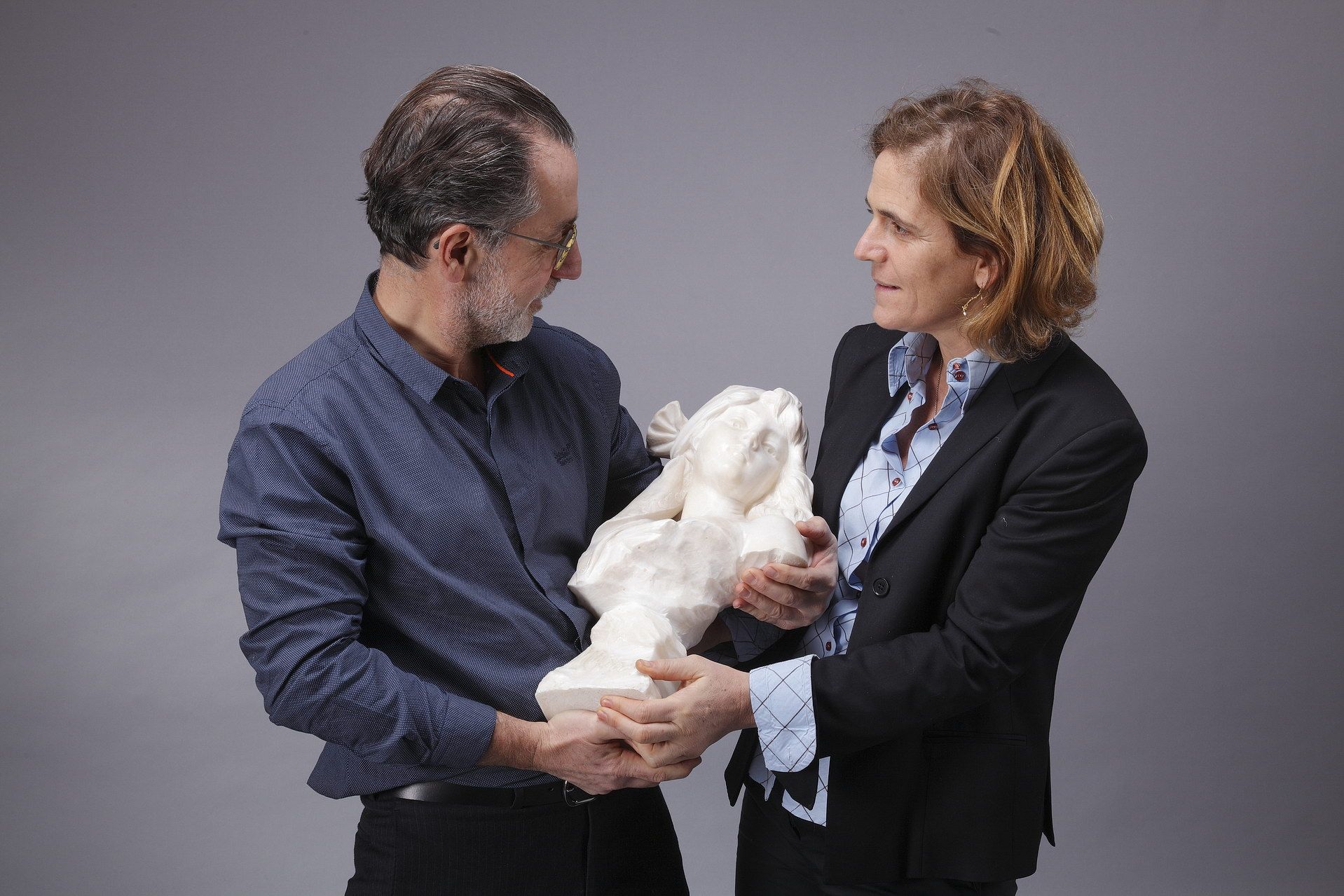 The founders of Galerie Atena - Frédéric and Nidal
The founders of Galerie Atena - Frédéric and Nidal
An unusual business model for an antiques gallery
At their Montesson premises, they are setting up a new organization that integrates the entire value chain, enabling them to provide top-quality service to satisfy their customers to the full.Here, we take a look at the entire process, from purchase to catering to delivery to your doorstep.
Step 1: object selection
For 20 years, Frédéric and Nidal have patiently selected each object for their beauty, authenticity and state of preservation. Their quest for rarity and quality of work allows them to offer a choice of objects whose value does not depend on speculation or trends. Both share the same passion for discovering new objects and do not hesitate to invest in unusual pieces. Their greatest satisfaction is to share this pleasure with their clients and to establish a lasting relationship based on trust and the love of beautiful things.
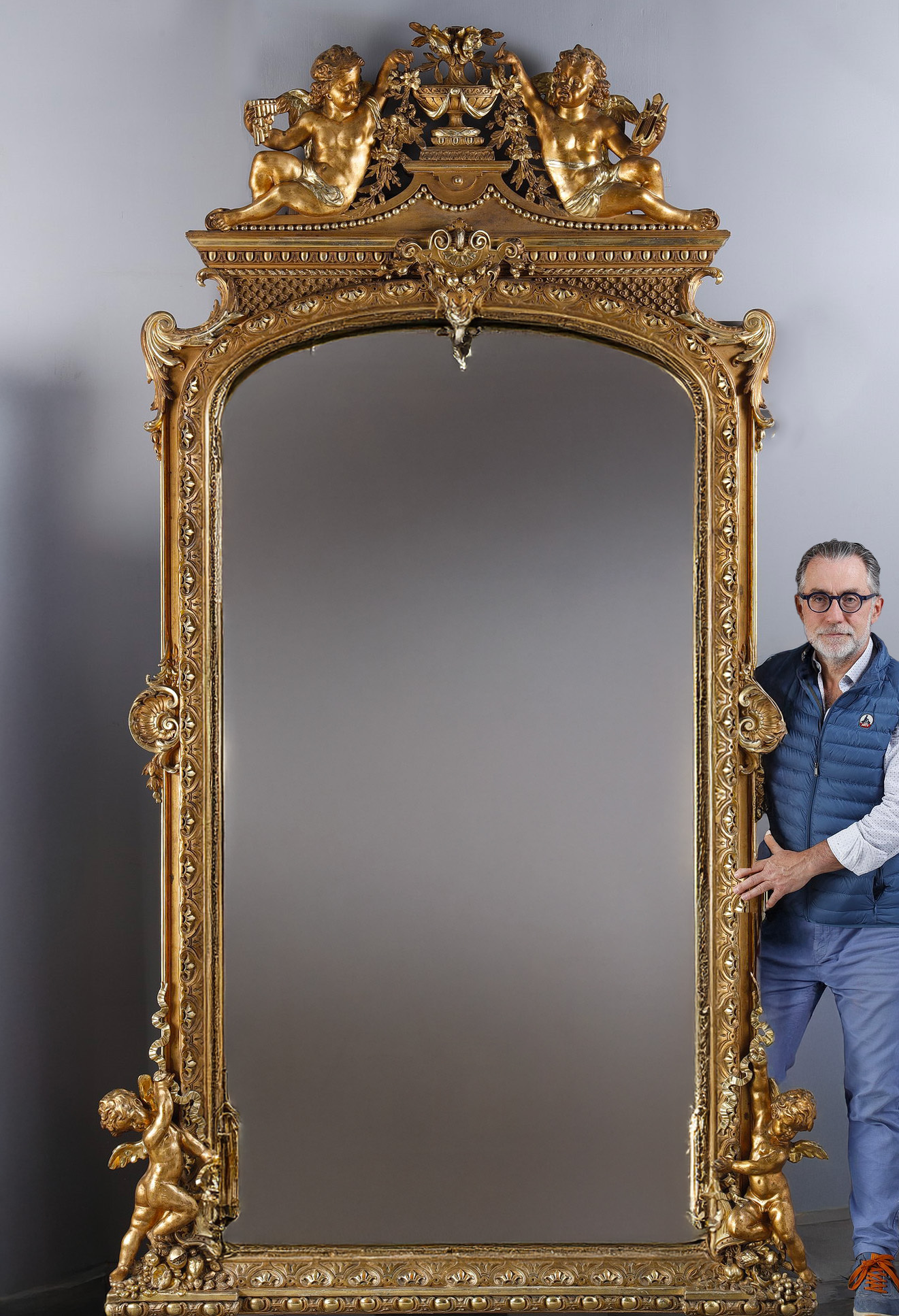
Louis XV style mirror, Napoleon III period
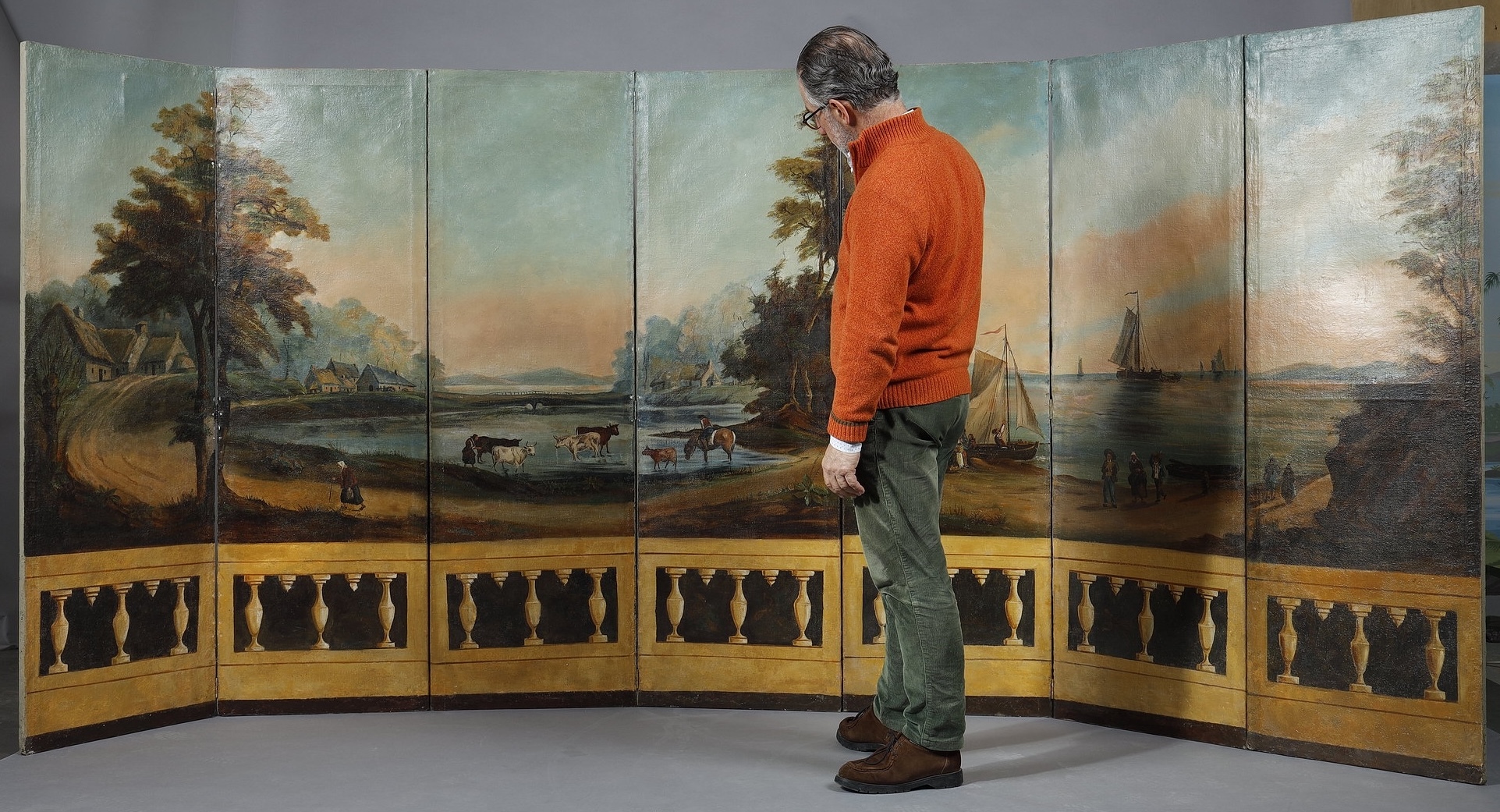
Antique painted canvas screen, French work, circa 1830
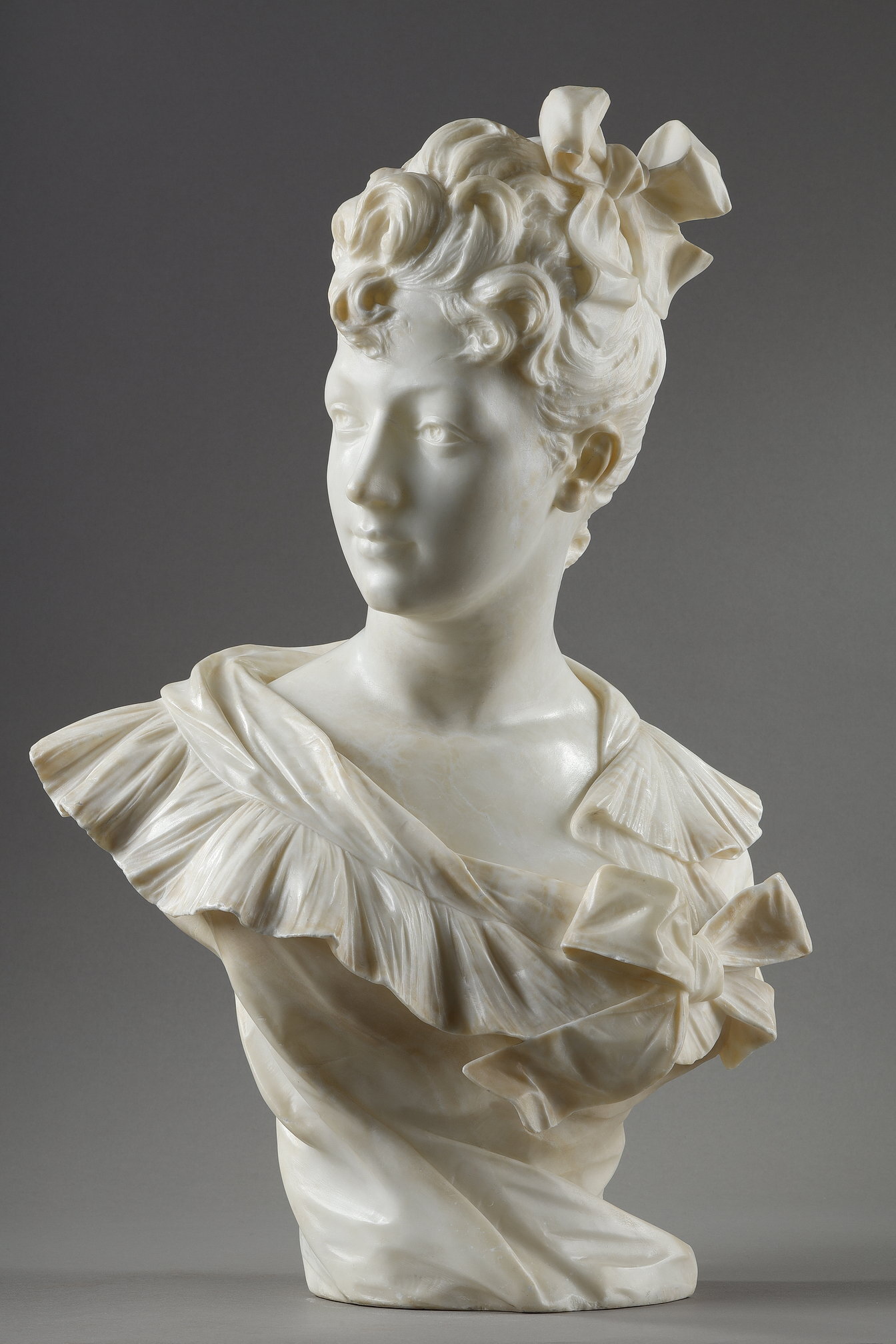
Stage 2: the restoration workshop
In their workshop, each object is carefully cleaned and restored to its original shine, while preserving its authenticity.
Herbert and Emma, their daughter, are in charge of the majority of object and furniture restorations, but they also call on specialized restorers to carry out specific work. Their many years of experience in the field have enabled them to build up a network of qualified craftsmen, whether gilders, cabinetmakers or upholsterers. They select these craftsmen for the quality, rigor and precision of their work.
Step 3: The photo studio
Once the objects have been restored, they are photographed by Yves, the gallery's photographer since 2004, in their professionally-equipped photo studio, to ensure the highest quality results. Galerie Atena is committed to respecting the reality of the objects as closely as possible, and refuses to alter perception with filters. The high quality of the photos they offer on their website enables them to satisfy 100% of their customers.
Stage 4: Exhibition spaces
Once restored and photographed, the objects are displayed in their various exhibition areas:
- Eighteenth- and nineteenth-century furniture is stocked in their Montesson showroom.
- Design furniture is moved to their guest house in Le Vésinet.
- Small collectibles are displayed in the Paris gallery on rue de Miromesnil.
Today, even though 95% of their customers buy online without coming, it is still possible to make an appointment to see the items in one of these three locations.
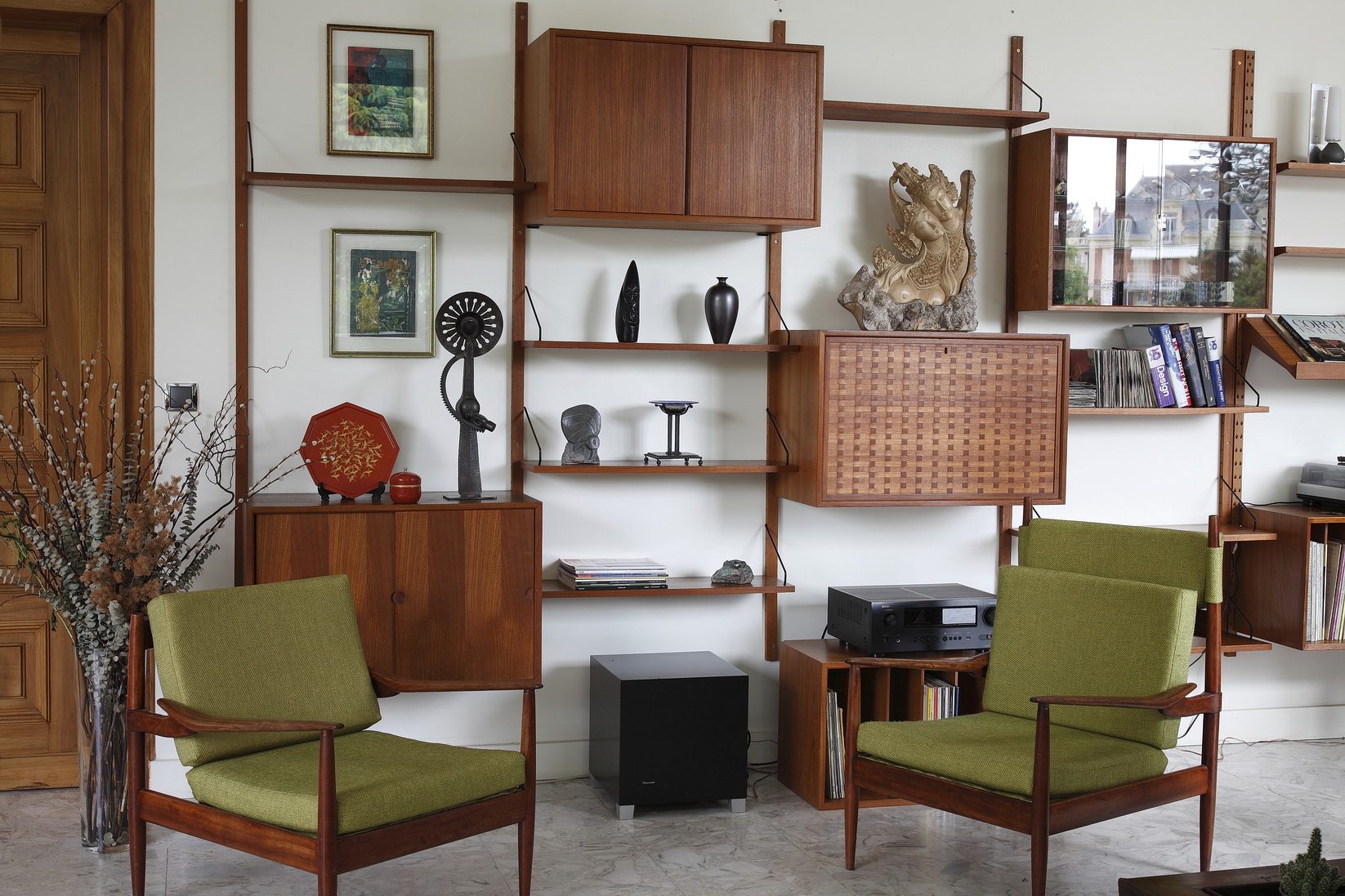 Le Vésinet guest house, decorated with 20th-century design furniture
Le Vésinet guest house, decorated with 20th-century design furniture
Step 5: Putting objects online
Before being published on their website, as well as on other specialized platforms, the objects are carefully described by Julia, an art history specialist. In order to describe the objects as accurately as possible, she has to carry out extensive research, documentation, cataloguing of dimensions and the state of conservation of each object.
Step 6: Packing and shipping
When an item has to be shipped, it is custom-packed in their workshop to ensure safe transport and impeccable service. They make their own crates, in wood or triple-fluted cardboard, adapted to the size and weight of the objects. They take every precaution to protect them with the appropriate packing materials (tissue paper, bubble wrap, blankets, rigid boxes and additional protection if necessary). Herbert is responsible for the design and custom manufacture of all packaging to ensure that their precious items travel in the best possible conditions.
This new organization has enabled them to integrate the entire value chain, enabling them to cut costs considerably and offer their customers extremely attractive prices for impeccable, high-quality products.
Digitizing the sector
The digitalization of the furniture industry and the development of new technologies have enabled them to offer their customers a top-quality online user experience. The level of precision of their photos and the optimized navigation of their website are just some of the elements that make it possible to sell their objects online.
For a few years now, they have been offering a visit to their 3D showroom so that you can immerse yourself in their world from your own home! The quality of this technology allows you to have a very precise idea of the objects and to make your purchases with a complete peace of mind.
Today, they are embarking on the adventure of 3D modeling all their furniture and objects, so that they can be easily integrated into any interior design project. Files of their modeled objects are available on Sketchup's 3D Warehouse platform.


